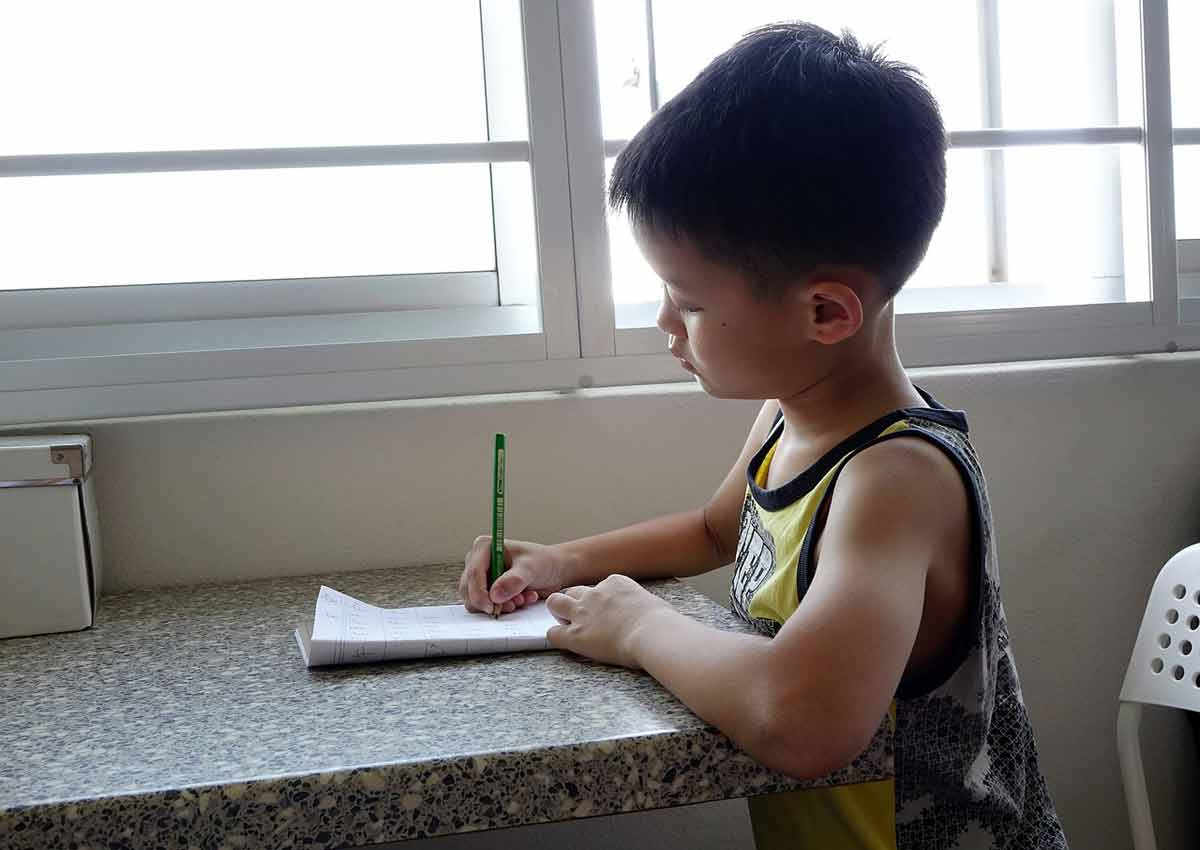The first textbook designed specifically for male pupils in primary schools in China has received positive feedback from parents, students and education professionals.
Earlier this month, the Shanghai Educational Publishing House unveiled the book, entitled Xiaoxiao Nanzihan or Little Man in English, aiming to help male students in the fourth and fifth grades understand sexual physiology, sexual psychology and enhance their self-protection.
The textbook, focusing on the mental health of male pupils, comes as nationwide discussions about what is called the “boys’ crisis” are rife.
A phenomenon that has long been observed, the boys’ crisis refers to the tendency of male students to lack masculinity, and be outperformed and overshadowed by girls at primary and secondary schools.
“So far we have received mainly positive comments from counterparts, school heads and parents, and many schools have shown interest in the book,” said Zhong Xiangyang, an official from the education bureau of Jing’an district, the body that initiated the textbook’s compilation.
“It has been used by some primary schools in Jing’an and a few outside the district and we will make efforts to promote it,” she added.
You Rui, the author of the book and also the principal of Zhabei No 3 Central Primary School, said it is the product of a pilot programme focusing on gender education at her school over the past decade.
“The gender education classes for male students at my school proved very popular,” she said.
With six chapters and full of colorful illustrations, the textbook introduces a wide range of basic knowledge including: “What is the difference between a boy and a girl?”; “Why am I a boy and not a girl?”; “What does a father mean to a son?”; “How can we get along with nature?”; and “Why do we need to have awareness about investment and money management?”
The book is expected to help boys more openly discuss questions they might otherwise not address in their daily lives, and the Shanghai Educational Publishing House said pupils who learn from the textbook will have a separate classroom from their female classmates.
“It’s quite necessary and positive to have gender education,” said Zhu Huafang, the mother of a third-grade boy.
Nowadays, both boys and girls are developing at an early age and they can be very curious, added Zhu, who works as a primary schoolteacher.
For example, her son sometimes poses questions such as: “what do female genitals look like?”, which Zhu said makes her feel awkward.
“I don’t know how to reply to him. Instead of having him search on the internet by himself-where improper answers are likely to pop up, why don’t we learn from the textbook?”
It’s not the first attempt the city has made to address the boys’ crisis.
In 2012, the first boys-only campus was created at Shanghai No 8 High School to help male students enhance their academic performance and cultivate masculinity.
Li Ruomeng, 19, a graduate of the all-boys class and now a freshman at a music institute in Germany, supports the idea of gender education at an early age.
“This kind of education should be there when someone’s standards and values start to take form, and I believe the new textbook will play a positive role,” he said.
Asked what he learned from the all-boys class, Li said athletics, survival training activities and etiquette education all helped him grow quickly.
In some classes, students would be exposed to different cultures and encouraged to learn how a gentleman should act.
“For example, now I know a gentleman should pull out a chair for the ladies before being seated at the dining table,” he added.
Jing’an district’s Zhong said her organisation is working with the Shanghai Educational Publishing House on a textbook specifically designed for girls which will be unveiled soon.























